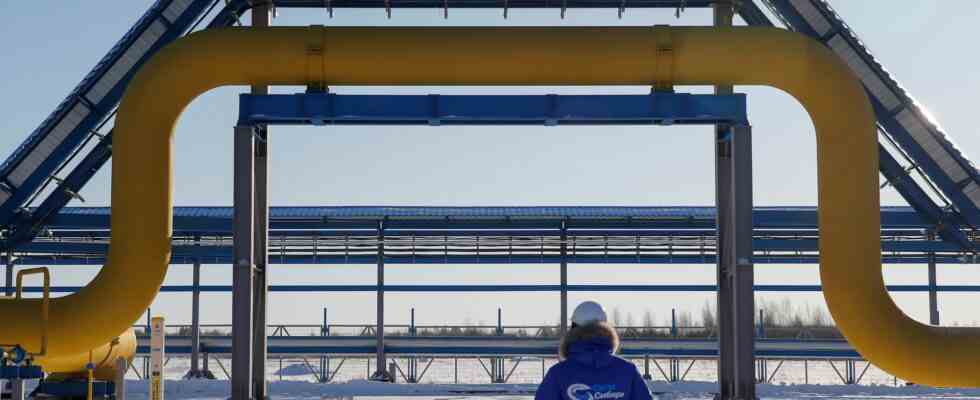Status: 05/23/2022 08:01 a.m
How can EU corporations pay for Russian gas without violating sanctions? With the bills at the end of May, the order by Kremlin chief Putin came into effect for the first time: Gas only for rubles. How do providers solve the problem?
So far, the European energy companies have mostly processed payment transactions via their national house banks. Now they have to open an account with Gazprombank, which has so far been exempt from EU sanctions. But the German suppliers, who are in close contact with the Federal Ministry of Economics and Technology, are also convinced that they are paying in accordance with the sanctions.
There one is responsible for compliance with the punitive measures, which the economy also supports, as a spokeswoman said in writing on request:
There are European guidelines on payment modalities dated April 21, 2022. They form the framework for us and we comply with them. According to this, the opening of the accounts is in accordance with the sanctions if a) payment is made in euros and dollars in accordance with the contracts and b) the companies declare that payment in euros or dollars has fulfilled the contractually owed service.”
Difficult construct for the payments
What happens next is still a bit nebulous. At its core, it is a construct of at least two accounts, says the SPD member of the European Parliament, Bernd Lange. The only important thing, according to the chairman of the trade committee, is that invoicing and payment continue to be made in euros. “The extent to which tricks are used there to keep the ruble stable is beyond our control,” says Lange.
Some gas importers, such as the Italian energy group Eni, opened a ruble account with Gazprombank in addition to a euro account. Allegedly, this does not contradict the EU sanctions.
However, the EU Commission could see things differently. Because the guidelines are clear, as spokesman Erik Marmer says: “European companies have to transfer their payments – as stipulated in the contracts – in euros or dollars to an account at Gazprom. And if the transaction is then considered completed, that’s compliant with the sanctions,” emphasizes Marmer. “If Gazprombank then opens a second account itself and exchanges the money for rubles, then that has nothing to do with the European importers and is a completely different matter.”
It is currently unclear how payments within Gazprombank will be exchanged from euros or dollars to rubles.
Image: EPA
Different interpretation of the guidelines
Within the EU Commission, however, the guidelines are interpreted differently, which makes the problem quite complicated, says CSU MEP Markus Ferber. It is of course understandable that the Commission deliberately wanted to leave some leeway in its specifications.
“In practice, however, the guidelines have caused some confusion and it is not entirely clear whether all companies concerned are behaving correctly or can behave correctly at all,” says Ferber. “So there is a certain gray area here. Unfortunately, the Commission itself also contributed to this.”
Exact procedure of Gazprombank unclear
Euros or dollars come in at the front and rubles come out at the back. But nobody knows who is exchanging the money, says Georg Zachmann. For the energy expert at the Bruegel think tank in Brussels, the government in Moscow is also deliberately leaving the activities of Gazprombank in the dark. “That can serve different purposes: On the one hand, it creates uncertainty in the market. That raises prices, which is good for Gazprom,” says Zachmann. “And you test how sensitive different countries are to the gas freeze threat.”
A fundamental problem is that the European energy companies have so far kept their supply contracts under wraps and all the details are only known on the Russian side. In view of the dramatic change in the situation caused by the Russian invasion, energy experts like Zachmann recommend a joint European chief negotiator who knows all European contracts and on this basis negotiates the delivery terms with Gazprom.
Ruble or euro: The dilemma of European gas supply
Matthias Reiche, MDR Brussels, 20.5.2022 3:31 p.m

